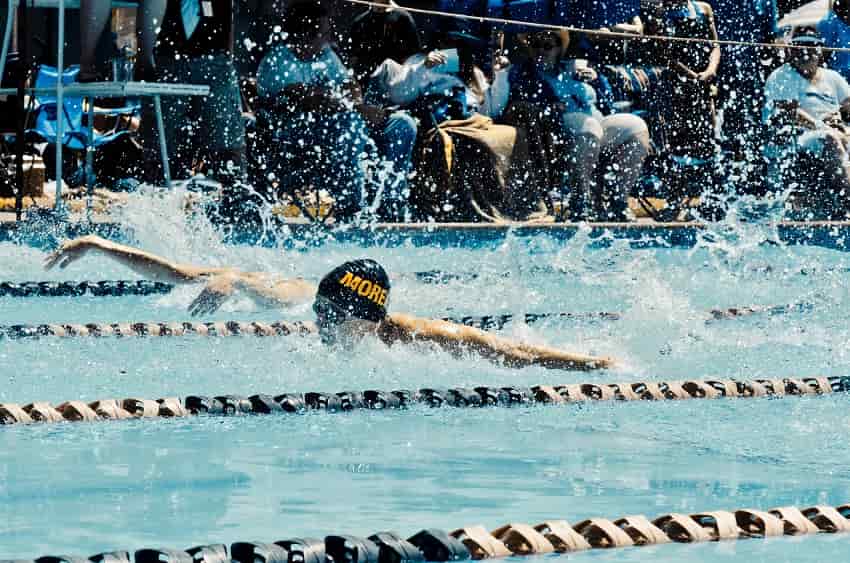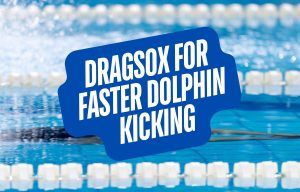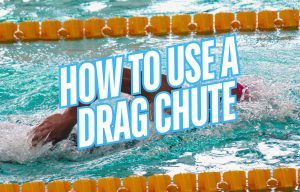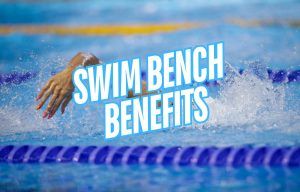Are you looking for the best waterproof sunscreen to protect your skin during your swim? Check out our guide to find top-rated options, including reef-safe choices, that offer broad-spectrum protection and won’t wash off easily in the water.
Breaking news announcement: Your skin is kind of important!
And although the ways to have fun in the sun are almost impossible to count, from splashing around in your above-ground swimming pool to doing laps at the local outdoor pool, there is a real serious downside to all those rays…
It rhymes with “skin cancer.” (Just kidding, it is skin cancer.)
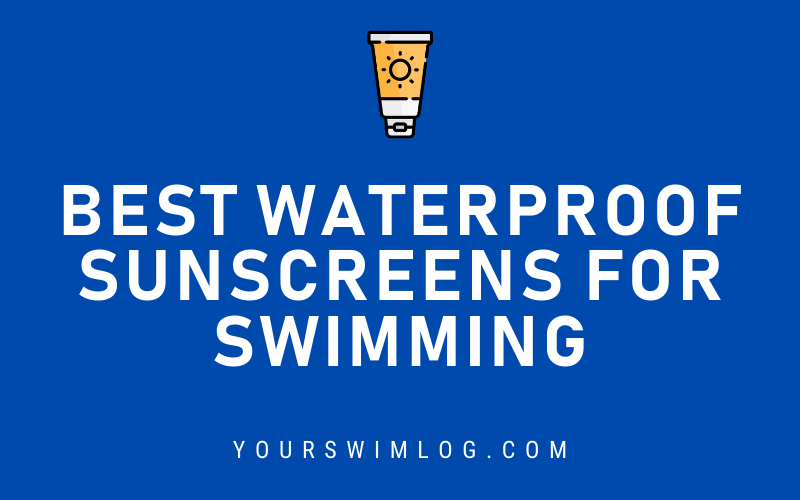
Putting sunscreen on is something you have likely heard a kajillion times from your parents, friends, swim coach, lifeguards, and medical professionals on television and on the internet.
Lathering on some waterproof sunscreen is a way to make sure that you can enjoy more sunshine and all the awesomeness that comes along with summer and the outdoors.
Combined with finding shade, whether under a pool umbrella or pool canopy, the right sunscreen protects our skin from nasty sunburns and keeps our skin from getting prematurely wrinkly.
Based on decades of swimming, both in open water and at my local outdoor swim pool, below are my hand-picked choices of the best waterproof sunscreens for all of your aquatic activities.
SolRx Waterblock SPF 50 Sunscreen
⭐ Best long-lasting waterproof sunscreen for outdoor swimmers
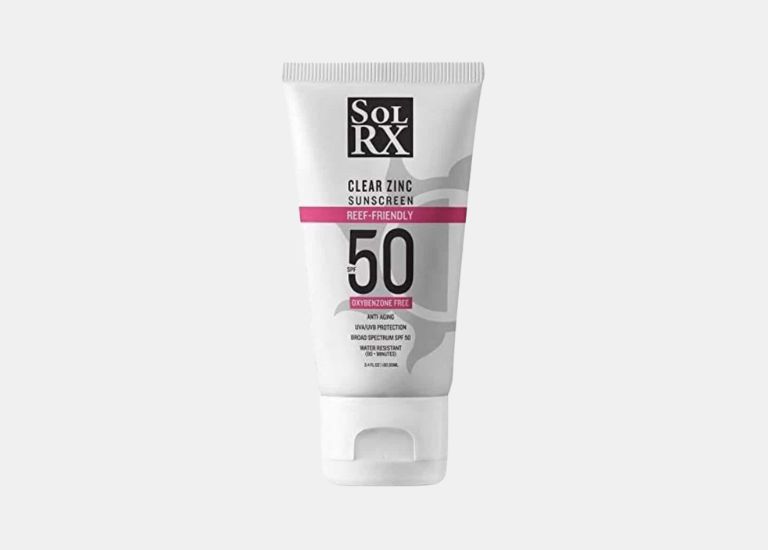
The SolRx Waterproof sunscreen was specifically designed for outdoor swimmers and surfers. While most sport sunscreens for swimming reflect the sun’s rays, SolRx Waterblock actually blocks the sun’s rays.
SolRx is rated SPF 50, and the reasons that it works so gosh-darn well is the zinc oxide sunscreen sits on top of the surface of the skin instead of being absorbed by it.
Like most sunscreens, apply 20-30 minutes before you get out into the sun to give the lotion a chance to lock-in. SolRx is not only a killer way to protect your skin while out in and on the water, but it is also free of oxybenzones, which means it’s not going to destroy your local neighborhood reef.
Consistently highly reviewed by swimmers and surfers in high-sun climates, the SolRx Waterblock SPF 50 Sunscreen is our favorite choice for high-level sun protection in the water.
TropicSport SPF 30 Waterproof Sunscreen
⭐ Best waterproof sunblock for a less chalky application
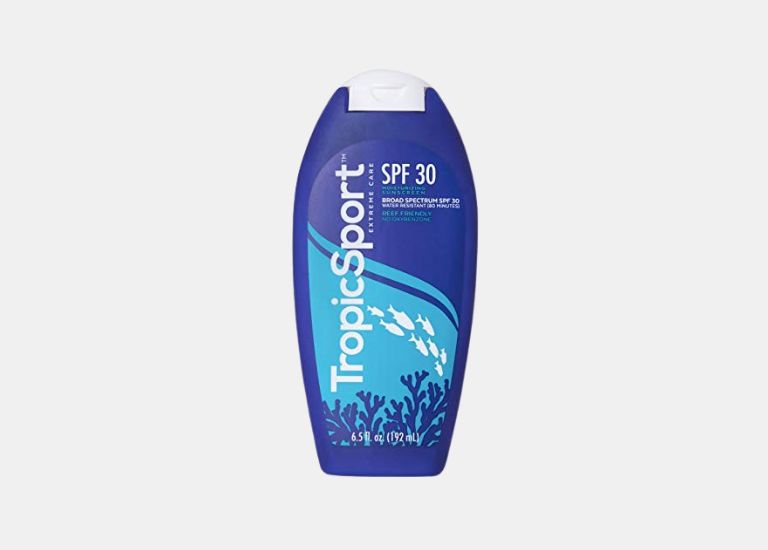
One of the most consistently highly-ranked waterproof sunscreens on the planet is TropicSport’s SPF 30 Waterproof Sunscreen.
Long-lasting, providing protection for up to around 80 minutes, this organic and oxybenzone-free lotion is an excellent choice for swimmers looking to protect their skin in the water.
Unlike many of the “heavy-duty” sunblocks, the TropicSport is smoothly applied, not goopy, thick, and leaving your face all white and ghosty after application.
I really like the TropicSport sunscreen as it gives you the full-spectrum protection of a sunblock with the transparent application of a sunscreen (more on the differences between sunblock and sunscreens in the FAQ below).
In my experience, one of the ways to get the most from this sunscreen is applying a quick layer of moisturizer before application to help the sunscreen properly “set” on the skin. This helps you get a longer lifespan from each application while splashing around.
Neutrogena Beach Defense Water Resistant Sunscreen
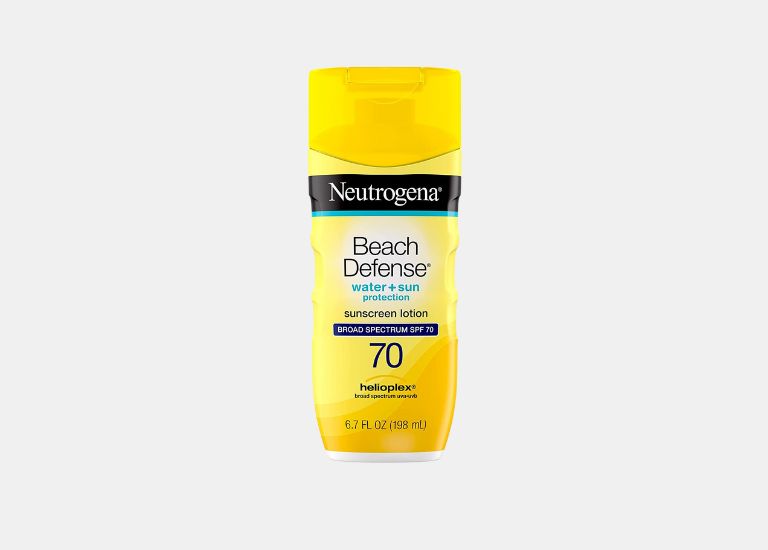
Nuetrogena is one of the big players when it comes to skincare. They produce a popular and highly-rated sunscreen that absorbs quickly, is free of oil, and is rated SPF 70.
PABA and oxybenzone-free, the Neutrogrena sunscreen doesn’t last quite as long as our top picks for best waterproof sunscreens, but it is highly effective for short-term exposures in the sun (up to 80-minutes).
Neutrogena recommends that for the most effective results, apply 15-minutes prior and to reapply every couple of hours.
Bull Frog Gel
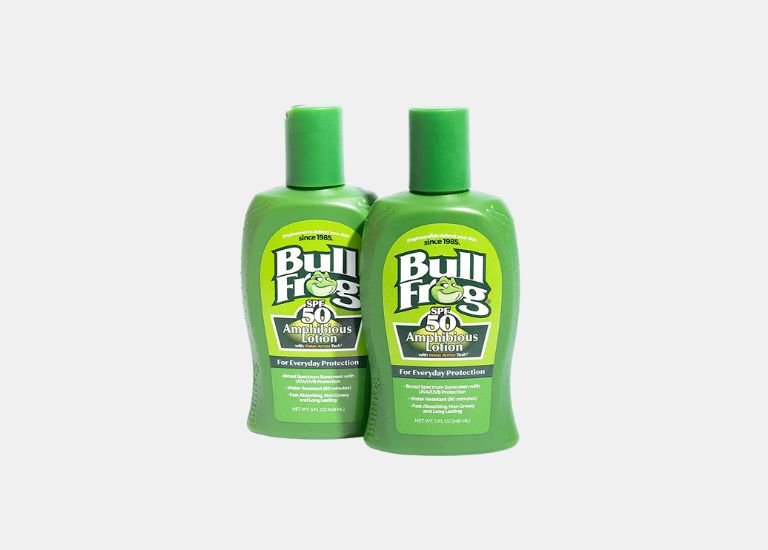
Sunscreens come in a variety of different liquids, and gels are one that you generally ascribe to aloe and post-sun lotions. But Bull Frog Waterproof Sunscreen (Gel) is an SPF 50 sunblock that provides broad-spectrum UVA/UVB protection.
The Bull Frog Waterproof Sunscreen Gel is free of oil and provides up to 80-minutes of sweat and water-resistance.
One of the realities of gels is the stickiness that comes after the application. On the plus side, it won’t leave your skin chalky and white after use.
Blue Lizard Sensitive Mineral Water Resistant Sunscreen
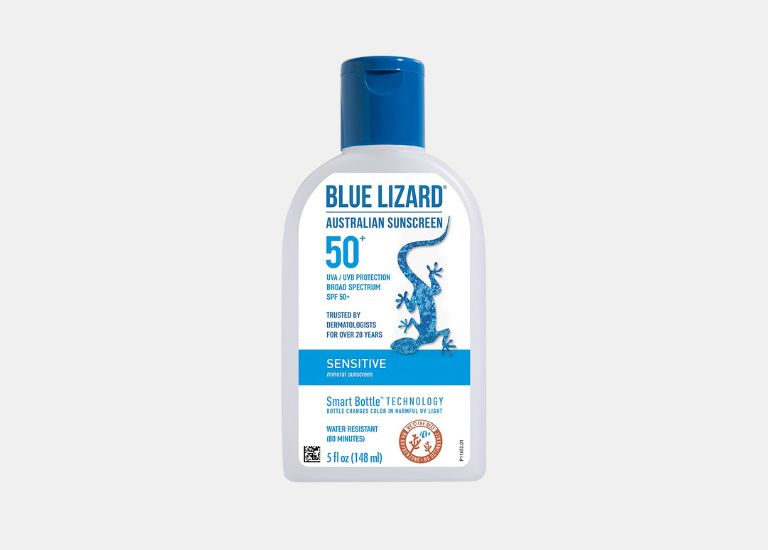
Rated SPF 50, the Blue Lizard Australian Sunscreen is reef-friendly, made without oxybenzone, and lasts around 80-minutes per application. The newest iteration of the Blue Lizard sunscreen doubles up the sun protection of the original formula.
The sunscreen is made with a combination of natural ingredients, including Vitamins B, C, and E that help protect and nourish your skin while out in the sunshine. Best administered 20ish minutes before you hop out into the sunshine and water.
Each bottle is 7oz of sun-screening protection that gives you broad-spectrum coverage without excessive scent.
What should I look for when choosing a waterproof sunscreen?
When choosing the right waterproof sunscreen for you, keep an eye out for products with a high SPF (sun protection factor) of at least 30+. Make sure it is labeled as “waterproof” or “water-resistant.”
Look for sunscreens that are also labeled as “broad-spectrum,” meaning they protect against both UVA and UVB rays. Finally, choose a sunscreen that is compatible with your skin type.
Some key things to look for when analyzing the blend of ingredients in water-resistant sunscreens:
✅ Levels of zinc. Zinc is an actual sunblock and not just a sunscreen like many sun lotions. Many long-distance swimmers favor zinc-heavy sunscreens and sunblocks for durability. Sunblocks high in zinc will leave your skin a little chalky-looking, but in terms of UV protection, it’s a total winner.
✅ Reef friendly. Some jurisdictions now bar sunscreens that contain oxybenzone. These harmful chemicals in many sunscreens are toxic to corals and marine life.
✅ SPF levels. It’s tempting to go as high as possible with SPF. SPF 30 must be double the awesome of SPF 15, right? Nope. SPF 15 sunscreen blocks around 93% of UVB rays while SPF 30 blocks 97%. SPF 30 is usually enough to provide adequate protection1.
✅ Full-spectrum protection. Sunscreens that have broad-spectrum protection help shield your skin from UVA rays and UVB rays. UVA rays account for 95% of ultra-violet rays and penetrate the skin more deeply and are linked to increased photoaging and skin cancers. UVB rays, while representing just 5% of UV rays, is what is most responsible for burning and tanning2. Sunscreens that have broad-spectrum protection provide the most amount of safeguarding for your skin3.
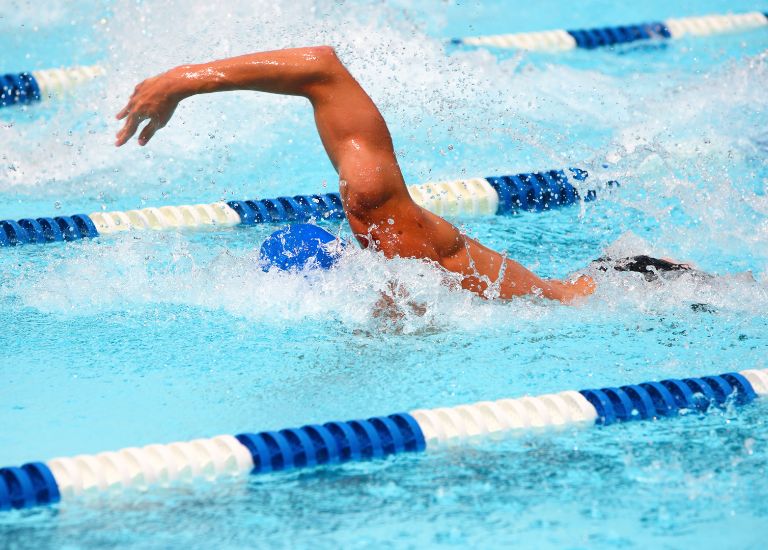
What’s the difference between a sunscreen and a sunblock?
While sunblock and sunscreen are used interchangeably, they perform very differently, both in terms of application and how much protection they provide from UVA and UVB rays.
Sun blocks are thicker, using zinc or titanium dioxide to literally block the sun from being absorbed into your skin. This enhanced protection does mean that this form of sun protection is thicker and more difficult to apply. They also leave a white, chalky residue on the skin (which can be helpful in visualizing where you are getting sun protection).
Sunscreens are the more popular option, available in creams and sprays that make it easy to apply. Sunscreens are a chemical blend that breaks apart UV rays before they can penetrate and damage skin.
While they do provide excellent protection (particularly the 30+ SPF sunscreens), they can wash off more easily, requiring more frequent application.
How do waterproof sunscreens work?
Sunscreens are made with organic and/or inorganic compounds that absorb ultraviolet radiation and convert it into lower-energy wavelengths like infrared radiation, which produces heat and increases the skin’s ability to tolerate radiation2.
Sunblocks, such as those with zinc oxide and titanium dioxide, work by reflecting UV rays away from the skin3.
In terms of sunscreens for swimming, they are considered water resistant if the sunscreen can retain 50% of its SPF after four rounds of immersion and drying off over an 80-minute period4.
How often should I reapply sunscreen when swimming?
Water-resistant sunscreens earn that label by being able to retain half of its SPF after 80-minutes. This standard includes four rounds of getting in the water and drying off.
While there is no “perfect” answer for this question—the UV index, how often you are going in and out of the water, and your specific skin sensitivity all influence application frequency—it can be handy just knowing how water-resistant sunscreens are rated.
The Bottom Line
Swimming in the sun is one of the most enjoyable aspects of being outdoors.
The fresh air, the warmth of the sun, and splashing around in the water combine to create an invigorating experience.
No need to cut that short by frying your skin!
Choose one of our choices above for the top waterproof sunscreen and get the most from your time in the water and sunshine.
More Stuff Like This
6 Best Waterproof Cast Covers for Swimming. Frustrated with being dry-docked with a broken arm or leg? Here’s a breakdown of the best waterproof cast covers for swimming and showering.
The 5 Best Body Washes for Swimmers (Bye-Bye Chlorine Smell and Dry Skin). The benefits of swimming are plenty–but one downside is the constant smell of chlorine and the dry skin it causes. Here’s how to keep your skin fresh and healthy after your next swim.

